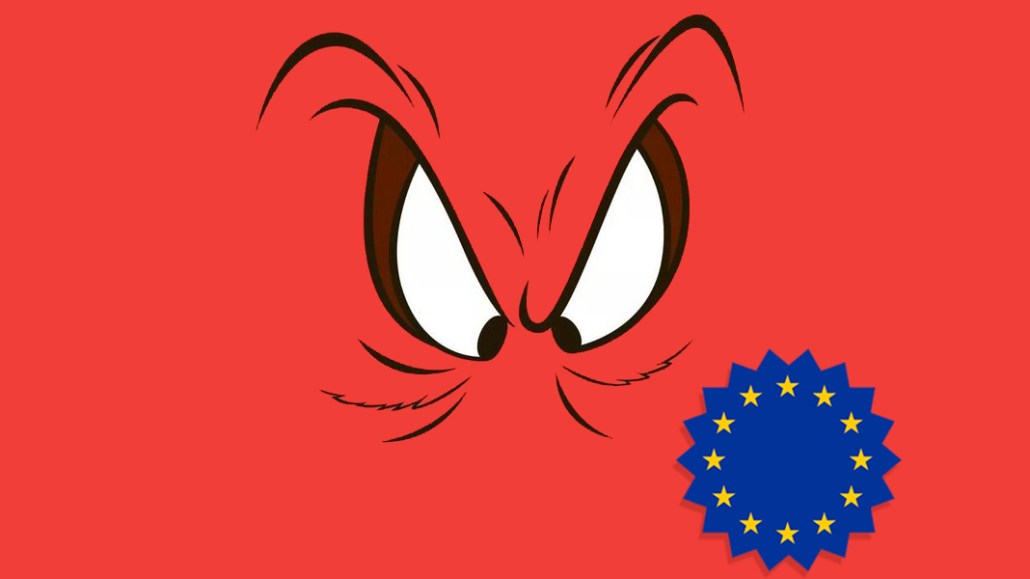Save 50% on a 3-month Digiday+ membership. Ends Dec 5.
‘It was their agenda’: Google meets with publishers over GDPR concerns

Google yesterday met with about 70 people, including some from publishing companies and their trade groups to discuss their concerns about Google’s plans to comply with the new General Data Protection Regulation.
Google organized the meeting after four trade groups — the News Media Association, European Publishers Council, News Media Alliance and Digital Content Next — sent a letter to Google complaining that its plans came too late for publishers to adequately react and posed several questions about how Google plans to comply with the European privacy law, which took effect May 25. But the four trade groups refused to attend, saying they wanted Google to answer the questions in writing first. With the company’s staunchest critics sitting out the meeting, the meeting itself was nonconfrontational, attendees said. So despite the boycott, the meeting just seemed to reinforce Google’s vast advantage in the Google-publisher relationship.
“It was their agenda. Google does what Google wants to do,” shrugged a publisher attendee, reflecting general publisher sentiment that Google has rammed through its GDPR policy without bothering much to hide its dominant position. The approach, from many publishers’ view, was less negotiation than explanation of the terms.
Another attendee came away appreciating the chance to meet with Google execs face to face and having with a better understanding of its position on GDPR. But while Google said the right things, publishers still worry that in the GDPR era, they are at the mercy of Google’s actions, this person said. “That was a real concern.”
About 100 were invited, according to someone close to the situation. In attendance were reps of trade groups including the Interactive Advertising Bureau and Local Media Consortium. Publisher attendees included BuzzFeed, The Washington Post, The E.W. Scripps Co., Vice Media and Haymarket. AccuWeather and Weather.com also sent reps, according to an attendee.
The main meeting took place at Google’s headquarters in New York; others attended through video conferences at Google’s offices in San Francisco; Washington, D.C.; Chicago; and London. Attendees heard from Bonita Stewart, Google’s vp of global partnerships; and Scott Spencer, director of product management, and were given a chance to ask questions.
Reps of the IAB, which Google belongs to, had positive things to say about the meeting.
Ad position: web_incontent_pos1
Productive meeting at google today with many publishers around the table. Robust Q&A and positive momentum. Highlighted challenges of complying with a law when so little guidance is available. Open dialogue is a necessity.
— Dave Grimaldi (@dfgrimaldi) May 24, 2018
Google issued a FAQ and letter to attendees afterward. Among the topics covered were how Google will enable publishers to show non-personalized ads to European site visitors who haven’t given their consent to be targeted and why Google considers itself a “controller” of data, which publishers worry will give Google too much control over the publishers’ user data. Google also laid out a timeline, starting in early June, for when it will integrate into the industry standard set by the IAB. Like most things about GDPR, there’s much uncertainty about how regulators will interpret it, and Google also acknowledged that its policy may change depending on how the law is ultimately enforced.
Get our complete guide to GDPR, including exclusive research, recent developments, checklists and much more.
More in Media

What publishers are wishing for this holiday season: End AI scraping and determine AI-powered audience value
Publishers want a fair, structured, regulated AI environment and they also want to define what the next decade of audience metrics looks like.

Digiday+ Research Subscription Index 2025: Subscription strategies from Bloomberg, The New York Times, Vox and others
Digiday’s third annual Subscription Index examines and measures publishers’ subscription strategies to identify common approaches and key tactics among Bloomberg, The New York Times, Vox and others.

From lawsuits to lobbying: How publishers are fighting AI
We may be closing out 2025, but publishers aren’t retreating from the battle of AI search — some are escalating it, and they expect the fight to stretch deep into 2026.
Ad position: web_bfu




